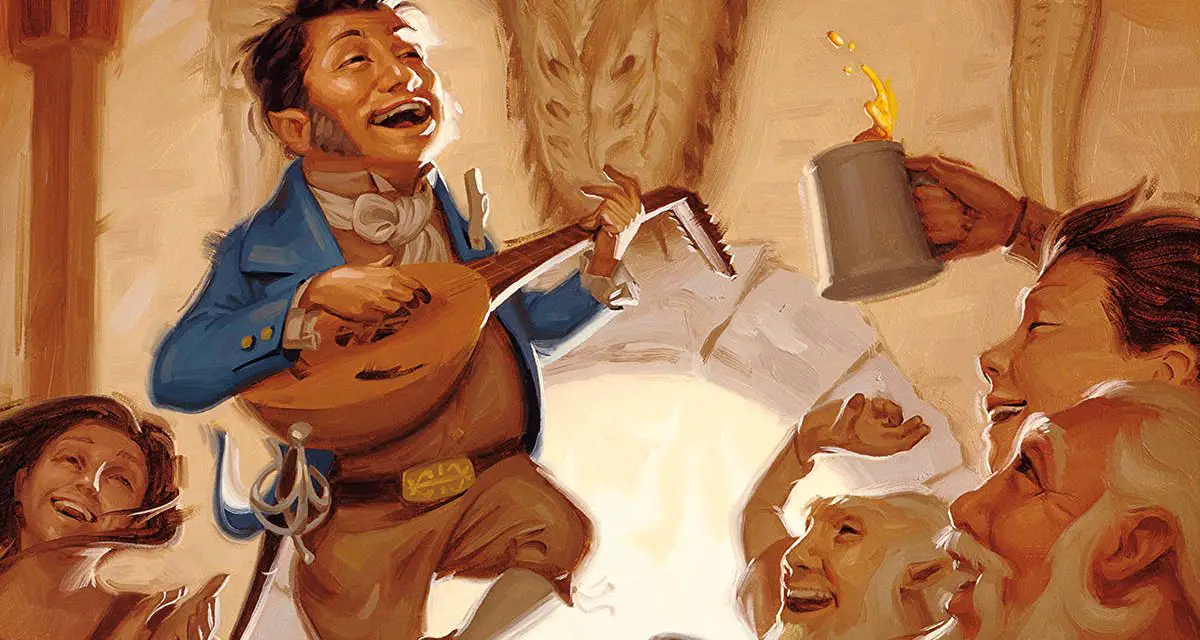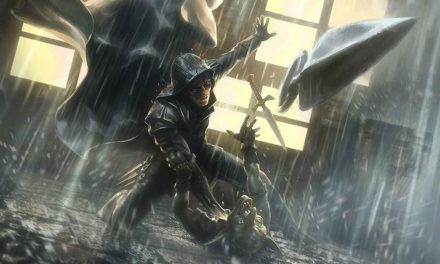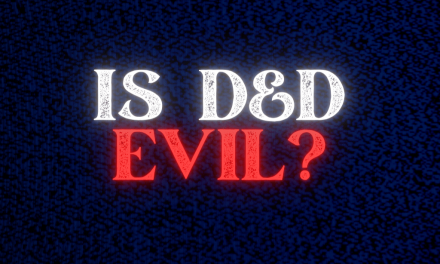Whether you’re a new player or just looking for a refresher, we proudly present: D&D Ability Scores Explained!
With these 6 abilities, you can build your character however you would like. More often than not, a character will really excel in some areas but be weaker in others.
You may want to play a strong and towering musclebound barbarian, but they may have an intelligence score that makes them… a little slow on the draw.
A Bard is bound to charming and charismatic, but they may be lacking in observational skills.
The choice is yours as we take a closer look at the ability scores (and what they mean) in Dungeons & Dragons 5th Edition.
What Are Ability Scores in D&D?
Your character’s ability score represents their aptitude in certain things. While the average human’s ability score in any given category is around a score of 10, as an adventurer you are well above average in your capabilities!
Each ability score gives a bonus of +1 to actions relying on that ability for every increment of 2 above the base level of 10. So having a 12 Strength yields a +1 bonus, 14 Strength yields a +2, and so on.
Conversely, every increment of 2 below the base level of 10 inflicts a -1 penalty on actions using that ability. So an 8 Strength yields a -1 penalty, 6 Strength yields a -2, and so on.
Ability scores cannot go above 20 unless this is made possible by some magic effect. A creature who is reduced to a score of 0 in one of their abilities dies. (This is rare, but possible!)
Also Check Out: 5 Ways to Determine Ability Scores in D&D 5e!
What Do Ability Scores Mean?
Each character has 6 ability scores. Let’s take a look at what each ability score means! We’ll also look over some examples of what high and low scores in an ability could mean.
As an exercise, try to think of why your character has high scores in specific abilities but lower scores in others. This will be very useful when you go to come up with their background later!
Strength
Strength represents your ability to use your muscles! Some situations require brute force like kicking in a door or lifting a large box full of treasure. It especially comes in handy when you need to rely on your Athletic abilities to swim or climb!
A character with a high Strength score is in great physical condition and is capable of nearly herculean feats of strength. Whether they’re helping carry a heavy load or swinging a battle axe like there’s no tomorrow, none can deny these characters’ physical prowess!
A character with a low Strength score may have difficulty with these skills. The studious Wizard spends so much time reading in the library that they rarely need to lift anything heavier than a book. Perhaps the charismatic Bard is a gifted performer but lives a relatively sheltered life. There are plenty of servants to take care of the heavy lifting at their family’s estate!
Dexterity
The Dexterity Ability Score represents how nimble a character is. Things like dodging an enemy’s attacks, sneaking past a band of goblins, or keeping your footing in a tricky situation are where Dexterity comes into play. Additionally, it takes Dexterity to use ranged weapons or those that require more finesse like bows and rapiers.
A character with a high Dexterity score is difficult to pin down. In combat, they focus on being able to outmaneuver their enemy rather than beat them with brute force. Outside of combat, the ability to move quickly and stay out of sight makes these characters excellent scouts.
A low Dexterity score, on the other hand, might mean that the character is just naturally clumsy. The party’s Paladin may be both noble and strong, but it is in everyone’s best interest that he is not allowed in the town’s ceramic shop.
Constitution
Constitution is a measure of your character’s health, stamina, and general hardiness. This directly affects the amount of hit points that you gain each level. Plus, attempting to resist the effects of poisons and other such devious things will often require a Constitution Saving Throw to resist.
Having a high Constitution Ability Score means that your character is in great health and possesses a great deal of stamina. These characters almost never get sick and are the pinnacle of great health!
A character with a low Constitution score, however, is particularly susceptible to poisons, diseases, and enemy attacks. With a lower pool of hit points, these characters at the greatest risk of dropping in combat.
While it is generally not advised to put your lowest score in Constitution, it can make for an interesting character. Perhaps your Wizard was chronically ill growing up. While they still battle this illness, they spent countless hours reading about the world outside their home before becoming an adventurer.
Intelligence
Intelligence is your character’s “book smarts.” This is the ability to recall information that you’ve read or learned. It’s also useful when attempting to investigate something as a high Intelligence score makes it more likely that the character can use logic and reasoning to make a determination.
A high Intelligence Ability Score is most useful to the brainy classes like Wizards or Artificers, but some extra brainpower never hurt anybody! Rogues benefit from Intelligence when looking for traps and other casters may want some extra bonuses when trying to determine the magical effects of something they’ve found.
Low Intelligence characters don’t have to be a blubbering idiot. They may have just never been exposed to more academic pursuits. The party’s Rogue may have grown up as an urchin on the streets with no formal education but plenty of “street smarts.” The Barbarian may not be able to tell the party what kind of boar they’re hunting, but they’re positive they can catch it for dinner.
Wisdom
The Wisdom Ability Score reflects your character’s observational abilities and general “gut feeling” about situations. Where Intelligence is focused on “book smarts,” Wisdom tends to fall under the “street smarts” category.
Being able to tell if someone is being truthful with you, noticing the minor details that others seem to miss, or being able to calmly handle animals are all signs of a high Wisdom ability score.
A character with low Wisdom may be naïve to the world around them, scatterbrained, or just not an observant person. I’m personally a fan of the “absent-minded professor” trope in which the character has a high Intelligence but their low Wisdom score means that they may not notice or register something that’s right in front of them.
Charisma
We finally come to the Charisma Ability Score. As one might expect, this reflects your character’s social skills such as persuading someone to help you, telling a little (or not-so-little) lie, or putting on a wonderful performance.
High Charisma characters are commonly portrayed as being charming and radiant people. However, a high Charisma ability is also important to a military commander who must use their presence and not necessarily their charm to command their forces. In either case, both rely heavily on confidence and carrying themselves in a way that people are more likely to listen to them.
A low Charisma character can be interesting to play. Their low Charisma score may stem from just being shy and having a difficult time relating to others. The character may have a distinct feature such as a scar or other wound that makes others unfairly avoid them.
Of course, it’s also possible that the character’s personality is just, shall we say, an acquired taste.
And There You Have It
So there it is: the D&D Ability Scores Explained!
For those new to Dungeons & Dragons or tabletop gaming in general, it can be a bit confusing at first.
But I promise, it will all click and you will be incredibly confident in making the perfect character that your heart desires!
Don’t be afraid to lean in to your character’s lower ability scores to guide your roleplaying.
Who knows? You may even find it easier to roleplay to characters’ weaknesses than their strengths!









